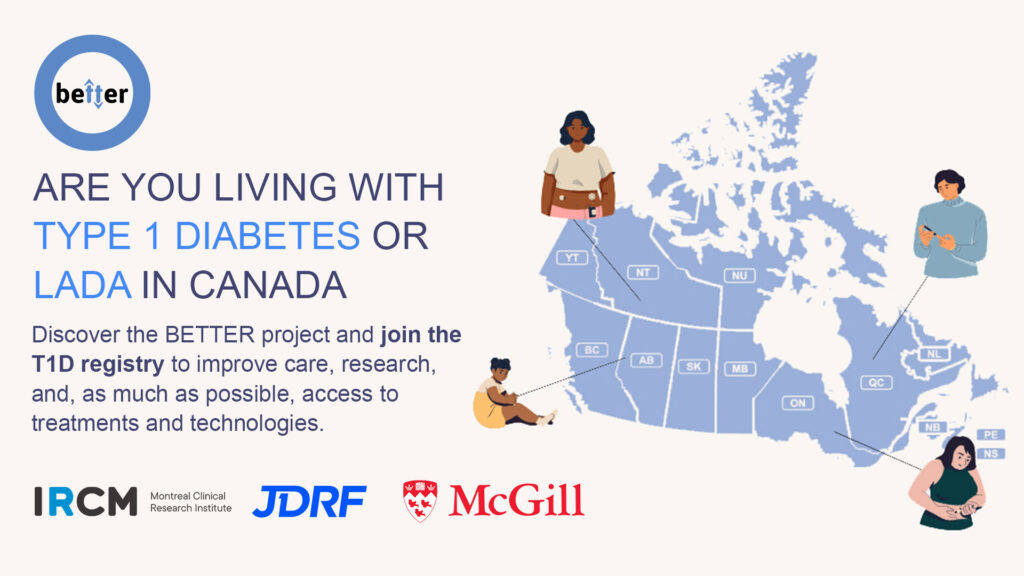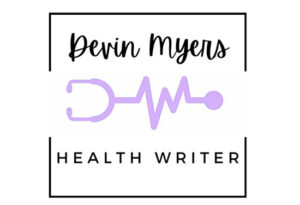
The BETTER project, a Canadian research initiative, gets a boost from renewed JDRF funding. Bringing together patient partners – people living, or with a child living, with type 1 diabetes (T1D) – researchers, healthcare professionals and policymakers, this project aims to improve the lives of people living by T1D in Canada.
Initially funded by the Canadian Institutes of Health Research (CIHR) and JDRF until 2024, the BETTER project has received extended support from JDRF for an additional three years. This renewed funding acknowledges the project’s significant impact, and will enable the team to continue advancing research and innovation in the field of T1D.
In addition to this charitable monetary support, the project also benefits from donations from both industry and individuals, which provides a solid foundation for achieving its ambitious goals.
What is the BETTER project?
The BETTER research project stands out by the involvement of people living with T1D. By working closely with patient partners, the BETTER team members actively integrate the perspectives and needs of these individuals into all facets of their work related to T1D. This approach ensures that the project remains grounded in the lived experiences of those directly affected by T1D, and enables efforts to be directed towards truly effective and relevant solutions in order to improve care and optimize the use of treatments and technologies.
The project has 2 main focuses:
- A Canadian registry of people living with T1D, called the BETTER registry, in which people living with T1D (or LADA for Latent Autoimmune Diabetes in Adults) – or who have a child living with T1D – can share their experience through online questionnaires in order to enrich research and knowledge about T1D.
- An online self-training platform, called Support, offering easy access to educational resources and practical tools to better manage T1D on a daily basis.
In addition to these main fields of activity, the project also undertakes clinical research and has setup a biobank (a collection of human biological samples and clinical data used for medical research) to further knowledge about T1D.
A success story
Since its launch in 2019, the project has achieved several significant successes.
The registry currently has over 4,200 participants nationwide, providing valuable data to inform the scientific community and policymakers about the realities of T1D and its critical needs (e.g., the need for improved access to treatments and technologies). The data collected to date has enabled over 14 studies to be carried out to better understand the reality of T1D, exploring aspects such as the impact of socio-economic status, the burden of hypoglycemia, the use of technologies, and the stigma associated with this condition, to name but a few.
The Support platform has evolved over time to provide a content and a navigation experience tailored to adults and young people (aged 14 to 24) living with T1D, as well as to healthcare professionals. This platform, now recognized for its effectiveness in improving self-management among adults living with T1D and building the confidence of healthcare professionals, is a prime resource for education and training on T1D in Canada.
Moreover, the BETTER team has also succeeded in establishing provincial, national and international collaborations, thereby strengthening the project’s impact and scope in the field of T1D research and helping to train the next generation of researchers and healthcare professionals.
New funding for the future
With this new funding from JDRF, the BETTER project is resolutely looking to the future. Priority objectives include expanding the number of participants and improving representativeness within the registry to better reflect the diversity of people affected by T1D in Canada. Future research will explore a wide range of aspects of living with T1D, and project members are committed to strengthening the promotion and transfer of knowledge to improve T1D care across the country. In addition, they aspire to make the Support e-learning platform a must-have reference for education and training on T1D.
The BETTER team is more than never committed to continuing its efforts to improve life with T1D, and encourages anyone interested in learning more or joining the registry to visit www.type1better.com.




